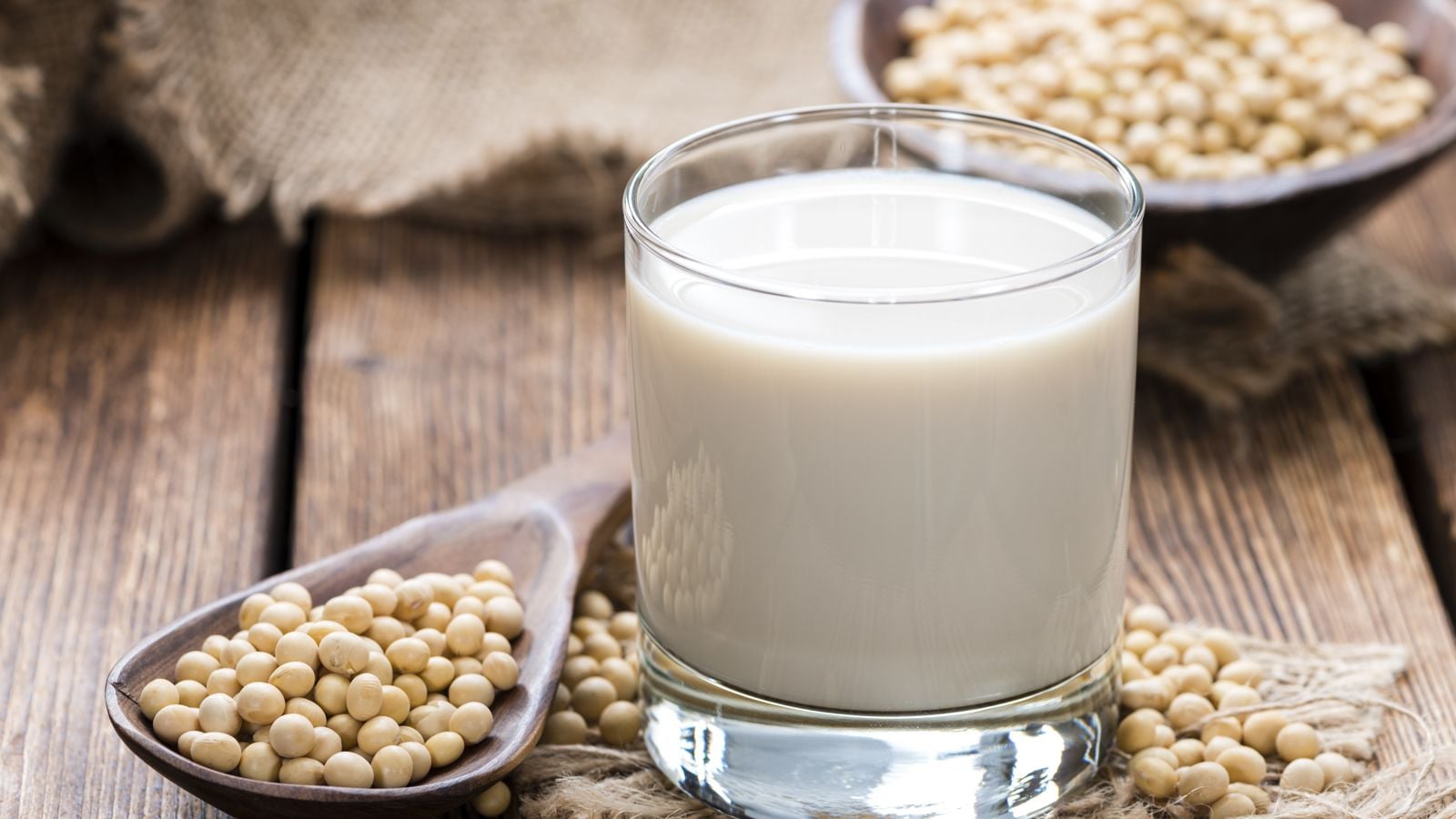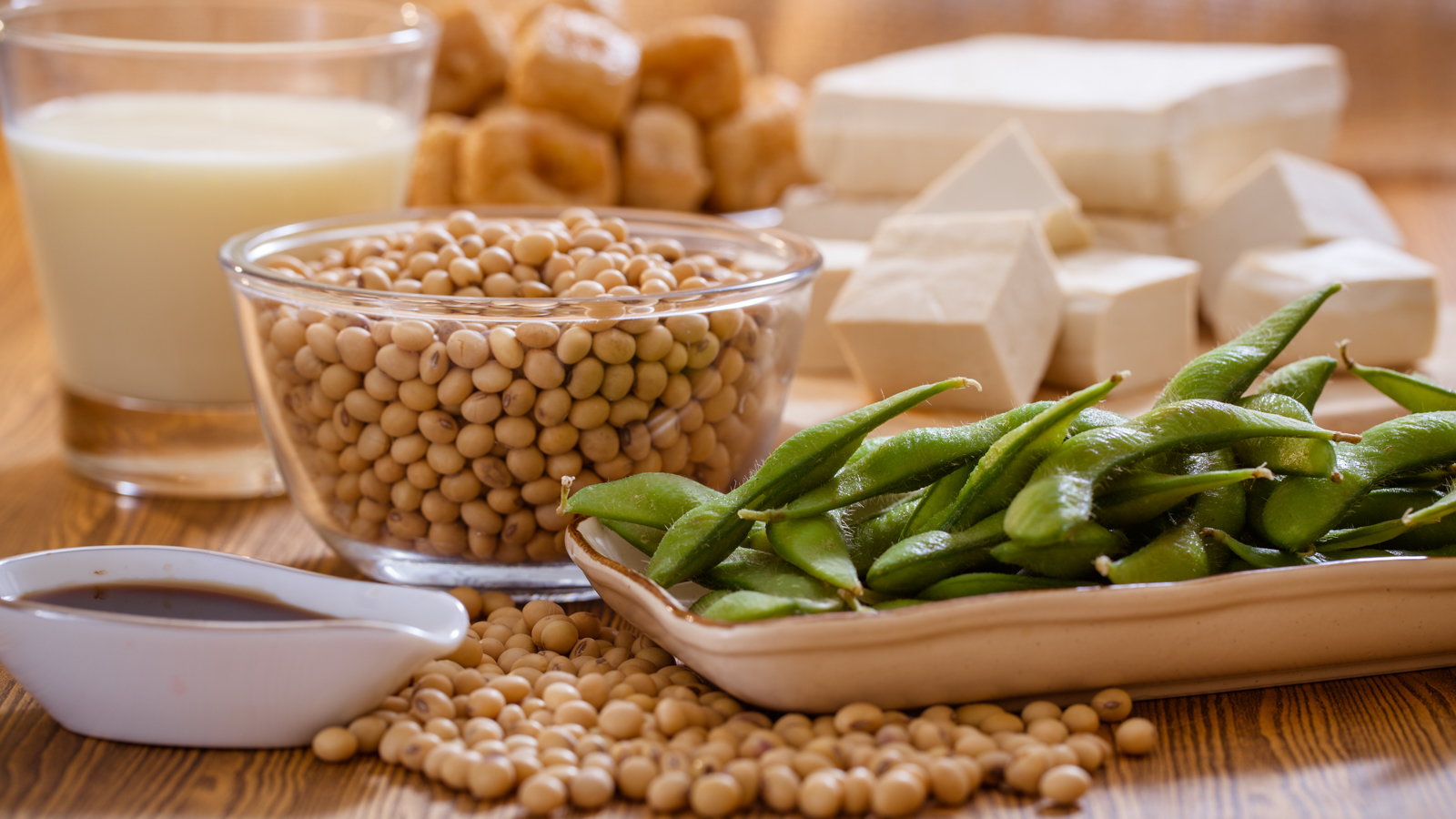
Many moms want to give their children a great start in life by teaching them healthy eating habits. Exposing your kids to a variety of healthy food and beverage choices while they are young will help them to become healthy adults. Since children develop food preferences at a young age; the preferences they have now may influence how they eat all the way into adulthood.
One great choice for your kids is soy. When making the switch from breastfeeding or formula to drinking milk in a cup, moms often assume their kids need to drink cow’s milk. However, there are a lot of great reasons to introduce your child to soy milk at an early age. Soy milk tastes great and a lot of children actually prefer the taste of it to cow’s milk. If they don’t take to plain soy milk, you can try vanilla flavored soy milk which most kids love.
But is soy milk actually a good substitute for cow’s milk? Let’s look at how their nutritional information compares. Below is the nutritional information for vanilla soy milk side by side with whole milk.
Side By Side Comparison
| 8th Continent Complete Soymilk | Vitamin D Whole Milk | |||||||||||||||||||||||||||||||||||||||||||||||||||||||||||||||||||||||||||||||||||||||||||||||||||||||||||||
*percentage values based on a 2000 calorie diet. Source: 8thContinent.com |
*percentage values based on a 2000 calorie diet. Source: NutritionData.com | |||||||||||||||||||||||||||||||||||||||||||||||||||||||||||||||||||||||||||||||||||||||||||||||||||||||||||||
As you can see, soy milk is lower in fat, has no cholesterol, contains close to the same amount of protein as cow’s milk, has a higher percentage of most vitamins than cow’s milk, and is a great source of calcium.
What Are Some Other Benefits of Soy for Children?
Benefit 1: Soy products are usually lower in fat and calories when compared to meat and dairy foods. While young toddlers may need higher amounts of fats in their diets, most children do not need extra fat in their diets. By feeding your child foods that are lower in fat and calories you can help your child to maintain a healthy body weight and reduce his risk of childhood obesity.
Benefit 2: Soy products are lactose-free. Children that are lactose intolerant don’t make enough lactase (a digestive enzyme that breaks down lactose) to digest the lactose in milk. Soy milk is a great milk substitute for children that are lactose intolerant.

Benefit 3: Soy milk does not contain hormones. A lot of parents worry about giving their child milk containing synthetic hormones. Many dairy farms use the synthetic hormone rBGH (recombinant bovine growth hormone) to increase milk production. If your milk is not labeled as NO rBGH, it may contain synthetic growth hormones. While the FDA and other health organizations have deemed food products from cows treated with rBGH safe for consumption, many parents still feel better about giving their children soy milk which does not contain any hormones – synthetic or natural.
Benefit 4: Soy products may help reduce cholesterol and reduce the risk of heart disease. According to the FDA, eating “25 grams of soy protein a day, as part of a diet low in saturated fat and cholesterol, may reduce the risk of heart disease.” While most children do not have high cholesterol, children who eat a diet high in fat and cholesterol – especially children who are not physically active - may be at higher risk of heart disease later in on life.
Benefit 5: Soy contains isoflavones. Isoflavones may have health benefits including reducing cholesterol levels, prevention of osteoporosis, and protection against certain types of cancers, like breast and prostate cancer.

